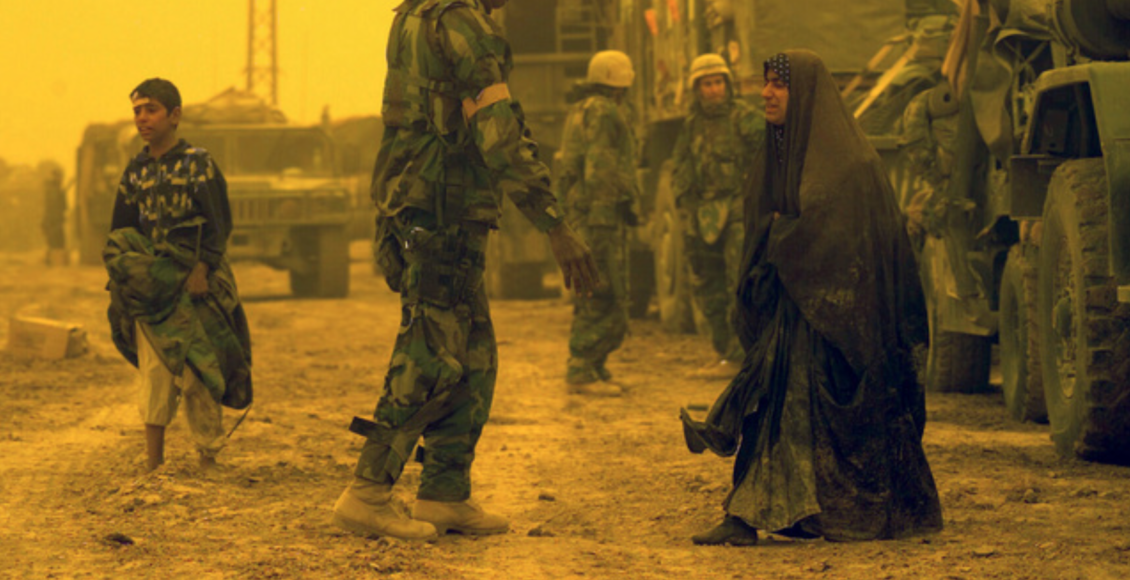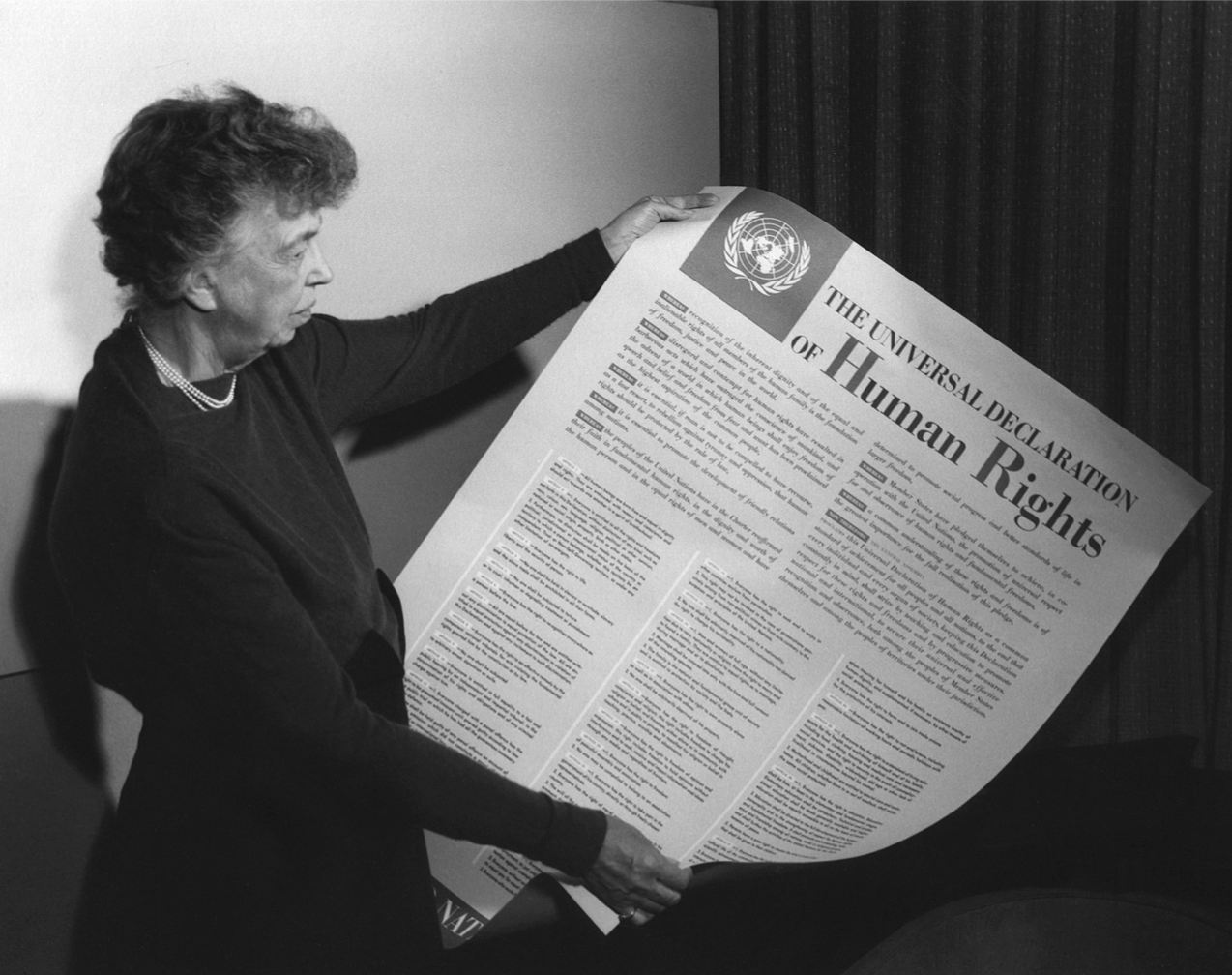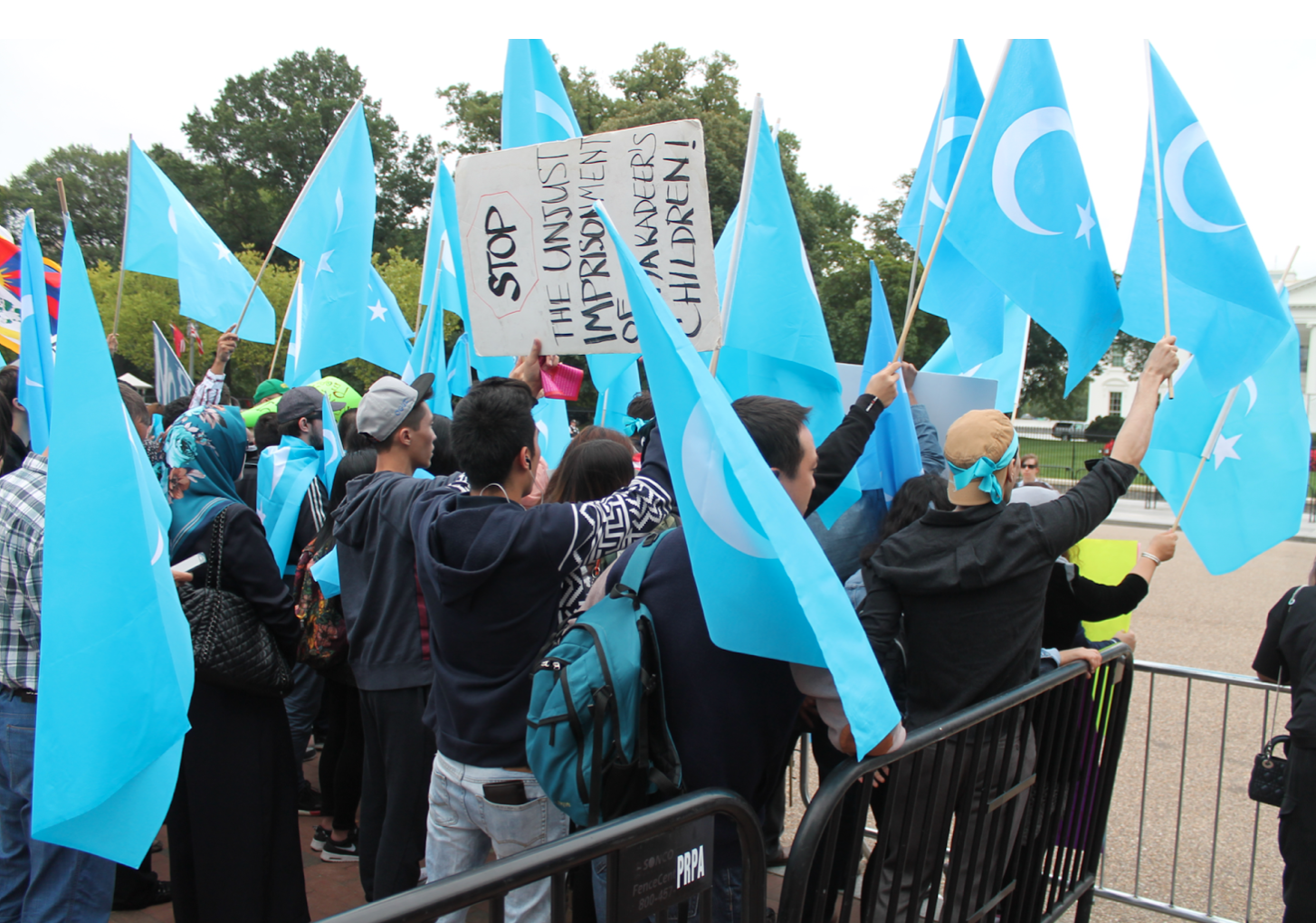‘Ethical’ Imperialism: Using Religious Freedom as a Justification for Self-Interested Foreign Policy Decisions
From MIR's featured series on religion and human rights.

In December of 1948, the international community gathered together at the United Nations (UN) to pass the Universal Declaration of Human Rights (UDHR) – codifying individual freedoms, particularly religious freedom, as fundamental rights across the globe. Religious freedom, being the right to practice, change or interact with a belief system system of one’s choice, has become an influential and effective foreign policy tool used by many international actors to combat religious discrimination and intolerance. Documents such as the Universal Declaration of Human Rights present a significant achievement for global security and religious protections as they came in the aftermath of widespread criticism of the international community in preventing the occurrence of barbaric acts of violence and mass genocide during the Second World War. Since the Universal Declaration of Human Rights and the passing of Resolution 36/55 in 1981, religious freedom has become a priority of international concern. Indeed, over the past decades there has been a global call for representative and inclusive international laws and charters to protect those that stand to be discriminated against or persecuted for their beliefs.

FDR Presidential Library & Museum is licensed under Flickr.
Whilst the importance and positive influence of instituting religious freedom at the forefront of international concern is not up for debate, claims about the protection of religious freedom have been used to pursue foreign policy ambitions that are at their core, self interested. As history frequently shows, those who take on the responsibility of enforcing religious freedom across the globe are states with the financial and political capabilities to be the judge, jury and executioner of underdeveloped states.
The United Nations, arguably, carries two critical functions. First, to provide a voice of reason and unbiased judgment in times of international disputes, and second, to safeguard human rights violations and provide human safety in times of insecurity. The UN has certainly shown itself useful in settling trade disputes, peacekeeping operations and diplomatic efforts, but what exactly has it done to promote its egalitarian stance on human rights, particularly religious freedom? Is it their role to actively defend against states that allow and promote religious discrimination and persecution?
The short answer is no. United Nations members, along with the normative laws regarding the provision of human rights, almost entirely rely on voluntary compliance. Other than exerting diplomatic pressures or economic sanctions, there is a fundamental lack of legally binding enforcement mechanisms that hold oppressive states (or state actors) liable [1]. This is especially the case for powerful ‘founding’ states of the UN, who, if subject to international inquisition in human rights violations, would inflict economic and political damages on many of the UN’s members. Indeed, a report addressing China’s genocidal treatment of the minority ethnic religious group Uighurs, was rejected by the UN Human Rights Council, despite indisputable evidence of the use of internment camps to assimilate over 1 million Uighurs, forcing them to renounce their religion, work in factories and face significant human rights abuses. The lack of a collective push towards protecting minorities and religious freedom exemplifies the hierarchical and corrupt structure of the international organization responsible for maintaining an international security which grants protection to the instigators of human rights violations rather than its victims.
China is not the only power using arguments of religious freedom to justify, both to the international community and domestically, unjust intervention into other state’s affairs. In addition to normative doctrines such as UDHR, and following the atrocities committed in the 1990s in the Balkans and Rwanda, the UN and its member states have the Responsibility to Protect (or R2P) vulnerable populations who face the risk of genocidal practices, ethnic cleansing, war crimes and crimes against humanity. This political commitment creates an even greater incentive for powers to engage in self-interested foreign policy goals, and places greater power in the hands of a limited number of states. In specific, the Security Council’s five permanent members have the power to veto any undesirable intervention. Western powers such as the United States, are also responsible for using religious-based arguments to justify intervention. American foreign policy, in recent history, has been heavily influenced by religious factors ranging from the demonization of Islam post 9/11 to the unbounded support for Israel in their forced occupation of Palestine.
Indeed, Islam in the Middle East has long been misunderstood and oversimplified by Western powers. Language used to describe religious freedom and emphasize its presence (or lack thereof) in areas with a more complex socio-religious environment than in the West, can encourage “political authorities to discriminate between “good” and “bad” religion.” In the aftermath of 9/11 President Bush described various regimes in the region as being “the axis of evil” gradually framed narratives to portray Islam as “the religious enemy” [2]. This shaped domestic perceptions of Iraq and accumulated widespread domestic support for its invasion. Simultaneously, the U.S. was publicly calling on religious liberty as being the principle freedom of the human soul and stating its commitment to stand for that freedom not only domestically but also throughout the world [3].
It was later discovered that the US’s leading motivator behind its intervention was stabilizing the increasingly unstable global energy supply – in which they had tremendous vested interests – to ensure the continued free flow of Iraqi oil to international markets. The result of war caused state collapse and triggered an outbreak of brutal sectarian violence where tens of thousands of Iraqis, mostly consisting of ethnic and religious minorities were killed or caused to flee the country. Through this case, we see how religious freedom advocacy can mask other contributors to social tension and conflict, serving only to amplify and entrench religious divisions rather than protecting them. The lead-up and consequences of the US-Iraq invasion, in addition to the lack of collective action against China’s continuous human rights violations on Uighurs, undoubtedly undermines the UN’s safekeeping function.

Nevertheless, proponents of religious freedom intervention argue that these cases represent the outliers of a relatively successful and increasingly important foreign policy focus. Indeed, there is evidence corroborating that the denial of religious freedom – such as in the treatment of members of the Muslim Brotherhood in Egypt or Assad’s religiously oppressive policies in Syria – correlates with religious violence. Advocates emphasize that religious freedom has only recently become a serious topic of conversation in modern politics after being absent in American foreign policy for an extended period of time during and after the Cold War. Consequently, religious freedom requires serious consideration in foreign policy decisions. Whilst U.S. imperialism is historical factual, defenders of including religious dimensions to foreign policy decisions reassure us that in those periods where foreign policy most resembled colonial dominance, religious freedom was almost non-existent on the US agenda.
Both sides of the argument speak on a critical point: the relevance, efficacy and ethics behind the use of religious freedom as a foreign policy tool. Sympathizers to the religious freedom argument are valid in their concerns due to its relevance in deadly conflicts, but it would be naive to categorize great powers as altruistic in their efforts to safe keep or promote religious freedom across the globe. However, a factor that lacks analysis in this debate is the role of the international community; international organizations such as the UN play a significant part in legitimizing self-interested foreign policy ambitions and integrating polarizing religious dimensions to already vulnerable states. It is no coincidence that those who most proliferate human rights advocacy are the ones who least apply it in their own societies. Western states such as the US and the UK, who villainize ‘foreign’ religions such as Islam and classify the Middle East as a region ‘plagued with religious conflict,’ exhibit higher levels of political and societal discrimination than in developing states. Hence, rhetoric surrounding human rights upheaval and documents highlighting the central importance of religious freedoms excuse and place power into the hands of states that do not have a strong record of upholding this complex and multifaceted issue on their own end. To quote Fox, one of the leading authorities on religion and politics, “if the West wants to promote religious freedom, it needs to clean up its own house.”
Thus, the question lies less in how one must define religious freedom, but rather on who determines its legitimacy as a cause ‘worth’ fighting for and for what purposes. Furthermore, it must be recognized that the structure of the international system and the organizations around it render the ‘protection’ for religious freedom an inherently flawed pretext for foreign policy. One cannot simply ignore power dynamics and the role that rhetoric plays in legitimizing self-interested ambitions, but neither can one tolerate religious discrimination in the global arena. What one can and must do however, is critically question who gets to call the shots and urge for an enforcement mechanism which includes the perspectives and interests of those most affected religiously motivated foreign policy decisions.
Edited by Anna Hayes.
Featured image: “Iraqi Freedom” by The U.S. National Archives is licensed under NARA & DVIDS Public Domain Archive
[1] Carraro, Valentina. 2019. “Promoting Compliance with Human Rights: The Performance of the United Nations’ Universal Periodic Review and Treaty Bodies.” International Studies Quarterly 63 (4): 1081. doi:10.1093/isq/sqz078.
[2] Smidt, Corwin E. 2005. “Religion and American Attitudes toward Islam and an Invasion of Iraq.” Sociology of Religion 66 (3): 246. doi:10.2307/4153098.
[3] Powell, Colin L 2002. “Report on International Religious Freedom.” Archive, U.S. Department of State.
